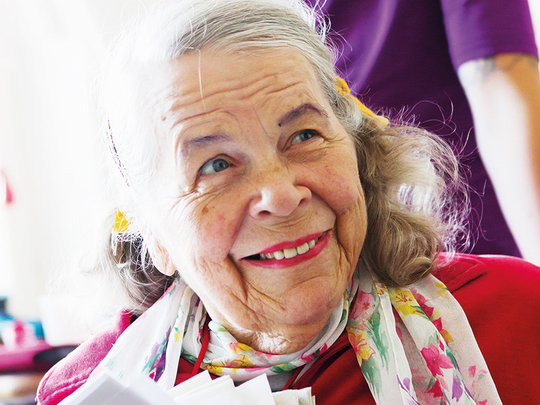
Finland has recorded remarkable growth and development in the past 100 years and this rapid ascension can also be seen in the nation’s healthcare industry. In fact, in the previous two decades, the value of Finnish health technology exports has increased more than five-fold.
The nation’s ability to embrace health is probably best illustrated by the health of its population and the government’s commitment to providing them with the latest and best standards of care.
In the 1970s, Finland had the highest obesity levels of all the Nordic countries. Fast forward to 2017 and Finland has truly turned things around. Next year a specialist children’s hospital will open in Finland at a cost of €175 million (Dh762 million). Of all research published in medical journals, 0.7 per cent originates from Finland, which is remarkable for a nation of just 5 million.
The cost per capita for healthcare in Finland is €3,600, which has been proven to offer both the best value healthcare in Europe and high-quality outcomes.
From a nation that previously had some of the highest cardiovascular disease figures in the world, Finland is now an advanced country where 900,000 citizens were treated by virtual psychiatrists last year, alleviating hours of travel from rural areas to cities to receive specialist care. Speak to a medical specialist from Helsinki University and they will explain that Finland’s pursuit of medical tourists is not financially motivated but is in fact driven by a desire to maintain a diverse set of specialisms, allowing them to treat Finns suffering from less common diseases.
Caring for its elderly
One area that the Finns are particularly proud of is their programmes for caring for the elderly, The City of Helsinki Service Centre being a perfect benchmark. Essentially it’s a large call centre with 1,500 employees that makes 20,000 video visits to elderly patients in their homes each month.
What this means is that elderly Finns are able to receive treatment in their homes, eliminating the need to travel to healthcare centres and allowing them to maintain independence in the comfort of their own homes. The regular social interaction also means that they are less likely to suffer from loneliness, which is a growing issue for pensioners across the world. A virtual nurse is also able to make 50 visits during each shift, which is far more than a physical nurse who must travel to different homes.
The company estimates that in 2017 they saved 100,000km in unnecessary journeys by using their virtual, video call consultations.
The technology allows specialists to ensure that patients are taking their medication. It also means that they can call patients and simply remind them to take their medication or check that they are eating regularly. For a physical visit to a patient’s home, the average cost is €40 but for a video visit, this cost drops to just €5.







